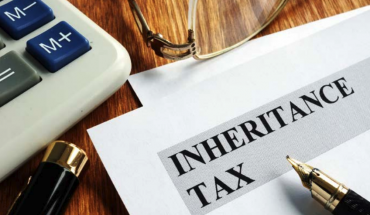By Stuart Dalmedo, Senior Associate, Isolas
In late 2020 a Bill to repeal and re-enact with amendments and modifications the Fair Trading Act 2015 (the Act) was published. The Fair Trading Bill 2020 (the Bill) introduces a series of important changes to Gibraltar’s business licensing regime. Whilst there may still be slight changes to the Bill, it is expected that the Bill shall go before Parliament in the coming months and, if approved, shall become law in 2022.
The Bill establishes the continuation of the Office of Fair Trading (OFT) and strengthens its investigatory and enforcement powers; makes provisions for the protection of consumer interests (including the prevention of anti-competitive practises) and for the making and investigation of complaints; encourages good business practices towards consumers; and makes provisions for the licensing of businesses, previously the remit of the Business Licensing Authority (BLA).
One of the most significant changes in the Bill is the establishment of the Decision Making Committee (DMC), which shall replace the BLA. The DMC will exercise, on behalf of the OFT, the OFT’s powers in respect of a specified decision (imposing an administrative penalty or award of compensation, revoking, suspending, or refusing to renew a licence, or exercising a sanctioning power in a manner that prevents business being carried on) and consider appeals from any decision made by the OFT other than those initially made by the DMC. The committee will be comprised of eight persons, four of which must be lawyers with no less than ten years professional standing and who are barristers or solicitors of the Supreme Court of Gibraltar, as well as one representative from the Gibraltar Chamber of Commerce and the Gibraltar Federation of Small Businesses.
Do I need a Business Licence?
There is a presumption that everyone conducting business in Gibraltar will need a business licence. Sections 24 & 25 of the Bill stipulates that no person shall carry on business without a licence issued for that purpose by the OFT, unless that person is:
- employed by a person who carries on business;
- a director or shareholder of a body corporate which carries on business;
- a body corporate providing services to other persons in the same group (as defined in the Companies Act);
- carrying out domestic services to a private household;
- a journalist or is in printing and distributing a printed newspaper as defined in the Newspapers Act;
- carrying on business as a cottage industry, artisan, or as a service provider with an annual turnover which does not exceed a sum as may be prescribed by regulation from time to time, although such persons will be required to register with the OFT and renew their registration annually;
- appointed to conduct a sale of any goods in execution of an order of any court; or
- sells any goods, or provides any services either solely as a necessary incident to the provision of any professional or other services, or in connection with the raising of funds for philanthropic, charitable, cultural, sporting, or educational purposes. However, such persons will be required to inform the OFT in writing prior to selling the goods or providing the services.
Regulated businesses as defined in section 36 of the Bill, other than those under the Tobacco Act 1997 or Part II of the Licensing and Fees Act, will be exempt from the provisions of the Bill. These include services or sale of goods under the following Acts (or respective regulations): Financial Services Act 2019; Medical & Health Act 1997; Legal Services Act (when enacted); Gambling Act 2005; Petroleum Act; Firearms Act; or the Leisure Areas (Licensing) Act 2001.
Applications
Subject to conditions, the OFT shall within five working days of receipt of a licence application give notice by way of publishing on its website. This is a significant change to the current application process which requires notice to be given by the applicant via the Gazette and local newspaper.
Once issued, a business will be required to display their licence number on the homepage of any website it maintains, in addition to the existing requirement that a business must also display its licence prominently in the premises to which it relates.
Business Premises
In accordance with section 27 of the Bill, applicants will be required to submit evidence that they will be operating from a premise that is appropriate for the nature of their business, although a waiver may be granted providing the OFT is satisfied the business can be properly carried on without premises.
Factors which will determine the appropriateness of or need for business premises include (but are not limited to):
- whether the business is an online provider of services;
- the type, nature, and volume of goods to be sold (if any);
- the degree and type of contact with clients and supplies; and
- the number of employees that the business has or will require (if any) to carry on business appropriately.
Two businesses residing in the same premises may be granted one joint licence at the OFT’s discretion, if it is determined that the businesses can be carried on compatibly in the same premises.
Refusal of a Licence
In addition to the general principals affecting the granting of licences as outlined in the Act, the Bill identifies four further grounds on which a licence application may be rejected. The OFT may refuse to grant a licence if it is satisfied that:
- the premises do not accord with the Official Address Register or equivalent records held by Land Property Services;
- the applicant is a natural person who is not entitled to reside or work in Gibraltar in accordance with the laws of Gibraltar;
- the business is a Specified Business and the OFT is not satisfied that the person has the necessary skill, competence, qualification, or resources to carry on that business safely; or
- the applicant fails to provide to the satisfaction of the OFT any information outlined in the Bill or regulations provided with an application.
- The Bill defines a ‘Specified Business’ as one which involves the introduction or insertion of any substance into the body of a person; tattooing; the application or administration of prescription-only medicine; the provision of counselling or therapy; or any process that involves the breaking of another person’s skin.
Additionally, the Bill determines that the OFT may refuse to issue a licence in respect of business requiring a licence, authorisation, registration or other form of approval or permission under any other enactment which has not been obtained by the person or in respect of the premises.
The OFT retains the right to refuse a licence on the grounds that the applicant or premises differs to that which obtained any licence, authorisation, registration or other form of approval or permission under any other enactment.
The Bill also introduces a fit and proper criteria, which is not contained in the Act, whereby the OFT shall refuse to issue a licence to any person who, in the opinion of the OFT, is not fit and proper to carry on the business. A person will not be considered fit and proper for a licence if:
- the person has been convicted of a crime the OFT considers material to the application, within 5 years preceding the date of application; or
- being a company, has a director, shareholder or ultimate beneficial owner to whom (a) applies; or
- being a trust or foundation, has a beneficiary to whom (a) applies; or
- being a partnership, has a partner who is a person to whom (a) applies; or
- the OFT is not satisfied that the Relevant Person (as defined in section 30) is not a fit and proper person with regard to the provisions of the Proceeds of Crime Act 2015 or any other law of Gibraltar concerned with the identification or eradication of money laundering or terrorist financing.
Money Laundering and Financing of Terrorism
Section 30 addresses the application or transfer of a business licence by an estate or letting agent; a dealer in high value goods; a high risk dealer; a potential high value dealer; an art market participant; or such other business as prescribed by the Minister in regulations.
Any change affecting a Relevant Person shall be notified to the OFT within 7 days, upon receipt of which the OFT shall conduct a fit and proper check.
Register of Licences
The Bill introduces the register of licences (Section 52) kept by the OFT which shall contain particulars in respect of every licence issued including but not limited to: the date of issue; name and business name of the licence holder; nature of business and premises at which it is authorised to be carried on; every transfer, extension, or renewal of licence; and every transfer of premises.
Enforcement and Sanctioning Powers
The OFT (and subsequently the DMC) may exercise a sanctioning power against a person following a complaint or of its own motion if the person has carried on business in a manner that the OFT considers to be harmful to consumer interests, or if the person has contravened a regulatory requirement. Such powers may take the form of:
- an undertaking;
- an administrative penalty (an amount payable to the OFT within 28 days);
- a cease and desist order (obliging the person to cease any activity considered to be a contravention);
- a directions order (obliging the person to fulfil a specific requirement in order to comply with the Bill or any other regulations or requirements lawfully imposed by the OFT);
- a compensation order (an order whereby a person must pay a sum to any person adversely affected by a contravention by way of compensation or, where relevant, a refund);
- a licence intervention order (which may temporarily suspend or revoke a licence); or
- a prohibition order.
The OFT must ensure that any sanctioning action is reasonable, proportionate, effective and dissuasive, taking account of all relevant circumstances including those outlined in subsections 94(a) to (g). The OFT must provide the person, in writing, with a warning notice before proposing to take a sanctioning action is taken. Once a sanctioning action is decided by the OFT, the person concerned must be issued with a decision notice.





